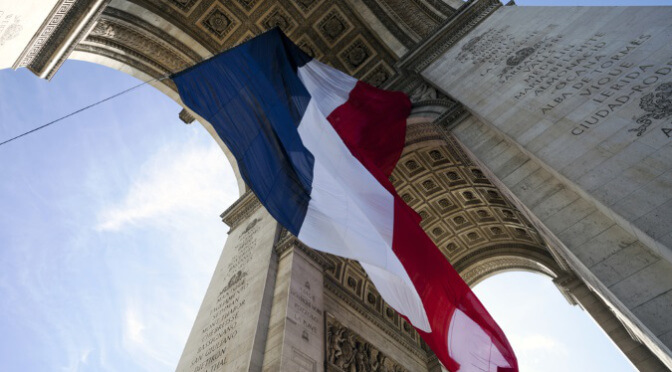Bastille Day, known in France as “la Fête Nationale”, takes place on 14 July every year. It’s far from a mere bank holiday, and is considered to be the ultimate celebration of French culture and heritage. This special day marks the Storming of the Bastille, a political event that shaped the France we know today. Here, we look at some of the historical ways to celebrate Bastille Day in Paris and beyond.
Why do the French celebrate Bastille Day?
Towards the end of the 18th Century, the French monarchy was in crisis. The country was on the brink of bankruptcy due to costly involvement in the American Revolution, yet King Louis XVI and his coiffed queen, Marie Antoinette, continued to spend lavishly while ordinary people starved. On 14 July 1789, Parisian rebels stormed the Bastille, a royal prison that had come to signify the cruelty of the sovereignty. This event marked the beginning of the French Revolution, a decade of political turmoil in which the king was overthrown by the new radical state and sent to the guillotine. Eventually of course, the absolute monarchy was replaced by a constitutional government.
On Bastille Day, throughout the country, you’ll hear impassioned cries of “Vive la France! Vive la République!” as people gather in the streets for huge parties, showing how significant it still is today.
Walk among French Revolution landmarks in Paris

With the morning ‘Fête de la Federation’ military parade on the Champs Élysées, and the mesmerising evening fireworks at the Eiffel Tower, there are few better places to be on Bastille Day than the City of Lights. If you want to delve deeper into the date’s fascinating history, why not fill your time between the two scheduled events with a walking tour of Paris’ French Revolution landmarks? There are plenty of French Revolution guided tours available to take in Paris, but if you’re on a shoestring budget it’s easy and free to soak up the sights with a self-guided trip. Simply download the Paris Maps and Walks app on the iTunes or Android app store and select the French Revolutions Landmarks tour.
In the aftermath of the first Bastille Day, a radical democratic republic rose up during a tumultuous period known as the Reign of Terror, and a lot of Parisian buildings were damaged beyond repair. However, many of the sites still standing are of a great historical significance now, including Place de la Concorde, Les Invalides, and La Conciergerie.
Discover visions of liberty at The Louvre

In a way, we also have Bastille Day to thank for what is arguably the greatest temple of human achievement. For more than 600 years, the Louvre in Paris was a royal stronghold and over the years became a symbol of the wealth and decadence of the French monarchy. As a gesture symbolising the democratic values of the French Revolution, the palace was transformed into a national museum in 1793. On Bastille Day, why not celebrate freedom of expression by feasting your eyes on iconic works by French painters? The museum is home to the Venus de Milo, Leonardo da Vinci’s ‘Mona Lisa’, and ‘Liberty Leading the People’ by Eugene Delacroix. (Contrary to popular belief, this breathtaking painting does not depict the French Revolution but the Paris uprising of July 1830, another important event in French history.)
Explore Rousseau’s House in Chambery

If you fancy a more sedate location to celebrate Bastille Day, venture to Chambery and discover more about the most controversial literary hero of the French Revolution. In his writing Confessions, one of the first widely published autobiographies, French philosopher Jean-Jacques Rousseau tells of a princess (possibly Marie Antoinette) who, on being informed that the country people had no bread, replied “Qu’ils mangent de la brioche” or “Let them eat cake”. The casual delivery has gone down as one of the most famous quotes in history, perfectly illustrating the flagrant disparity between the different social strata in 18th century France.
Nestling in the glorious Savoy countryside, overlooking Chambery near Lake Annecy, Les Charmettes was the country house that Rousseau called home for a period of time. You can visit the house free of charge for a guided tour, where you’ll see Rousseau’s writing room.
Ready to experience some of these historical ways to celebrate Bastille Day for yourself? Book your Dover to Calais ferry crossing today!



